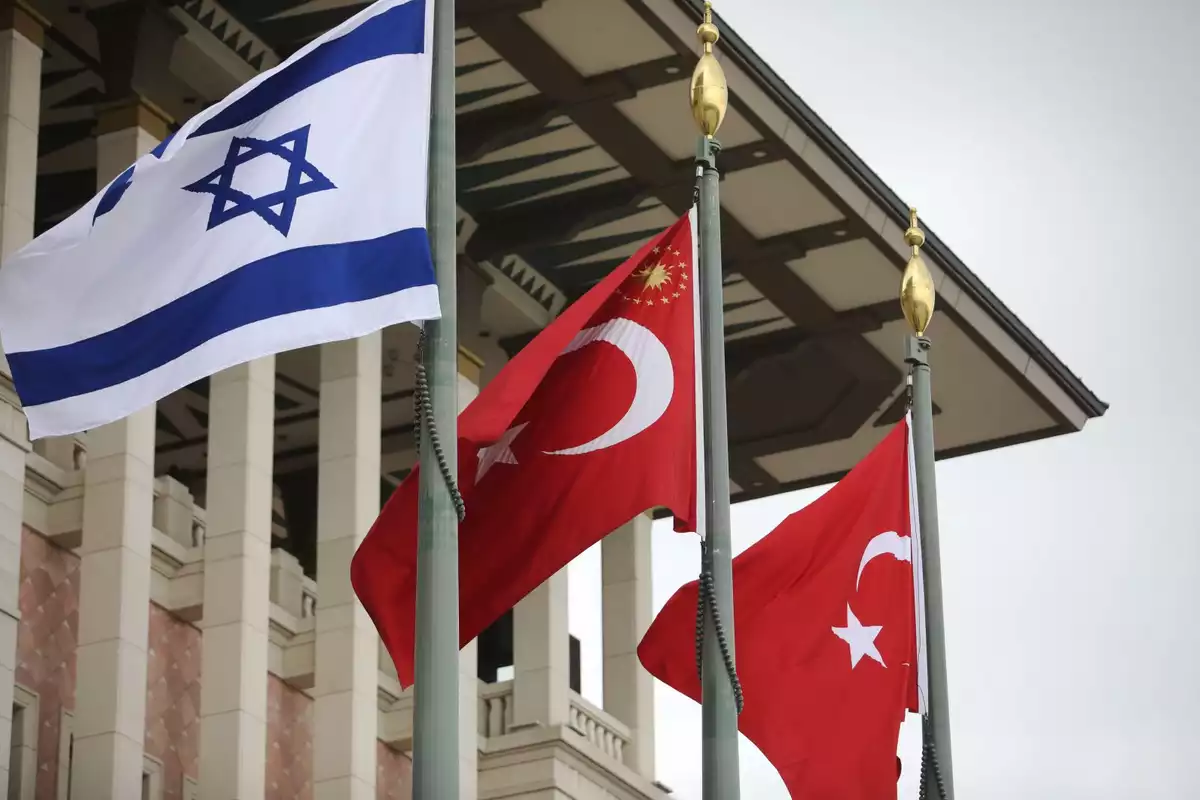
The Turkish and Israeli flags wave during a ceremony where Israeli President Isaac Herzog was welcomed with an official ceremony by President Recep Tayyip Erdoğan in capital Ankara, Türkiye, March 9, 2022. (Getty Images Photo)
By Tural Heybatov
Baku has never concealed its desire to see its close allies-Türkiye and Israel-as friends. While little has been publicly said about practical steps in this direction, efforts have been underway, something even Israeli diplomats have not denied.
Azerbaijan’s position on this matter was earlier expressed in an interview with Israel HaYom by Hikmet Hajiyev, Assistant to the President of Azerbaijan, who stated: “Türkiye is a brotherly country to Azerbaijan, and Israel is our strategic partner. We want our friends to genuinely be friends with each other. If both sides agree to such an initiative, Azerbaijan will always welcome it.”
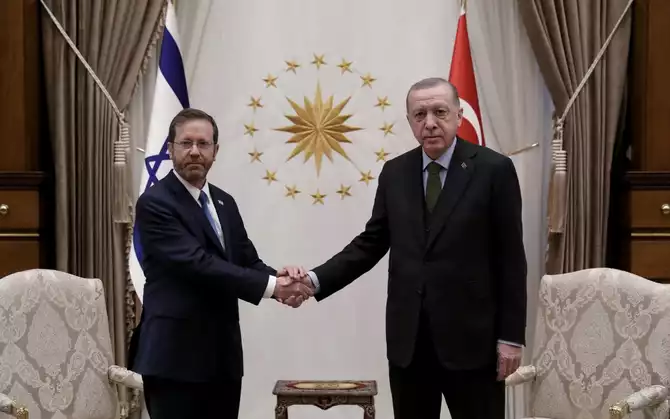
Turkish President Recep Tayyip Erdogan shakes hands with his Israeli counterpart Isaac Herzog during their meeting in Ankara, Turkey March 9, 2022. Murat Cetinmuhurdar/Presidential Press Office/Handout via REUTERS
These efforts have borne fruit. On March 9, 2022, a historic event took place: for the first time in many years, the President of Israel visited Ankara. Later, President Erdoğan and Prime Minister Netanyahu held a meeting in New York.
Today, Azerbaijan has once again taken on the role of mediator in resolving the second Turkish-Israeli crisis.
On April 9, 2025, Azerbaijan hosted the first technical meeting between Israel and Türkiye on establishing a deconfliction mechanism for Syria. The meeting came after Israel launched airstrikes the previous week on Syrian airfields in the Palmyra area, which Ankara had intended to bring under its control.
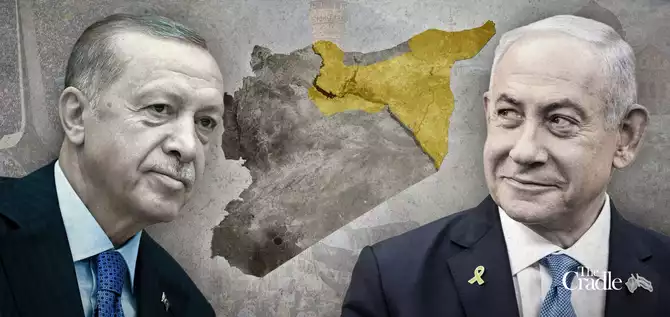
Photo credit: The Cradle
Relations between Israel and Türkiye are complex. Both countries are strong and ambitious, and both seek to assert their influence and advance their interests in the region they share. But for us, what matters most is that both are close friends of Azerbaijan. Based on this, Baku has consistently sought to play the role of peacemaker between Ankara and Tel Aviv, adopting as a motto for this triangle: “A friend of my friend is my friend.”
At the ADA University Forum, President Ilham Aliyev announced for the first time the negotiations between Türkiye and Israel mediated by Azerbaijan. He emphasized that the tensions between the two friends are a cause for concern and anxiety. “We know the course of action, and I can assure you that we are making every effort to be of help. Perhaps at this stage it would be inappropriate to say more, because, again, this is a relationship between two countries, and it is for them to decide to what extent they want to make public any process that takes place between us-if it ever will be. Again, during the first round of normalization, we maintained complete silence. We worked behind the scenes. So you can imagine we are doing the same now, and we hope the process leads to normalization. It’s always bad when your friends are in conflict. It’s bad for them. It’s bad for us. And it’s bad for the entire world,” said Ilham Aliyev.
Following the Azerbaijani president’s remarks, both the Turkish and Israeli sides confirmed that negotiations had taken place in Baku. Rear Admiral Zeki Aktürk, Press and Public Relations Advisor and spokesperson for the Turkish Ministry of National Defense, told reporters that on April 9, the first technical meeting between Türkiye and Israel on creating a conflict de-escalation mechanism to prevent undesirable incidents in Syria was held in Azerbaijan.
The Office of Israeli Prime Minister Benjamin Netanyahu also confirmed that direct negotiations with Turkish representatives were held on April 9 in Azerbaijan. The Israeli delegation, comprising senior officials from the Ministry of Defense and security services, was led by National Security Council Chairman Tzachi Hanegbi. The Israeli side expressed its gratitude to President Ilham Aliyev for organizing these important talks. It was reported that during the negotiations, the parties discussed their respective regional interests and agreed to continue the dialogue.
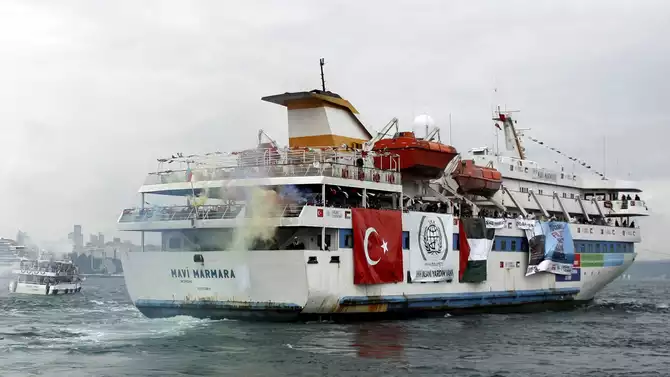
Source: Anadolu Agency
The current crisis is the second major rupture between Ankara and Israel. The first erupted in 2010 after the incident with the Mavi Marmara ship, which was part of the so-called “Freedom Flotilla” delivering humanitarian aid to the Gaza Strip. As a result of the Israeli military boarding the vessel, nine people were killed-eight of them Turkish citizens-and 30 others were wounded.
Following that incident, relations between the two countries rapidly deteriorated to the brink of collapse. External actors were unable to halt the sharp decline. Even the United States, as then-Secretary of State Hillary Clinton said, was shocked by the situation between Türkiye and Israel.
Türkiye announced a new naval strategy and declared its intention to redeploy part of its warships from the Black and Marmara Seas to the maritime borders of Israel. In response, Israel intensified contacts with the Armenian lobby in the U.S. Congress, aiming to promote recognition of the so-called “Armenian genocide” and to support Yerevan’s unofficial claims to Mount Ağrı (Ararat).
While the U.S. remained stunned by the developments, Azerbaijan took action. No one knew at the time about Baku’s mediating role. This became known much later-at the time, the information was classified. Only Israeli experts hinted at Baku’s involvement in their interviews.
Now, as Azerbaijan takes on the role of mediator between its friends for the second time, President Ilham Aliyev has openly spoken about his country’s first peacekeeping mission. According to him, Azerbaijan was instrumental to a certain extent in the initial successful reconciliation between Türkiye and Israel. The current crisis is the second in line. “During the first crisis, we played an active role in trying to bring the countries closer together. Yes, it wasn’t only Azerbaijan. But I would say that Azerbaijan was number one in that process. Again, everything happened behind the scenes. We never publicized it. We never tried to take credit for it. Our sole desire was to help our ally and brother Türkiye and our friend Israel to restore their relations,” said Ilham Aliyev.
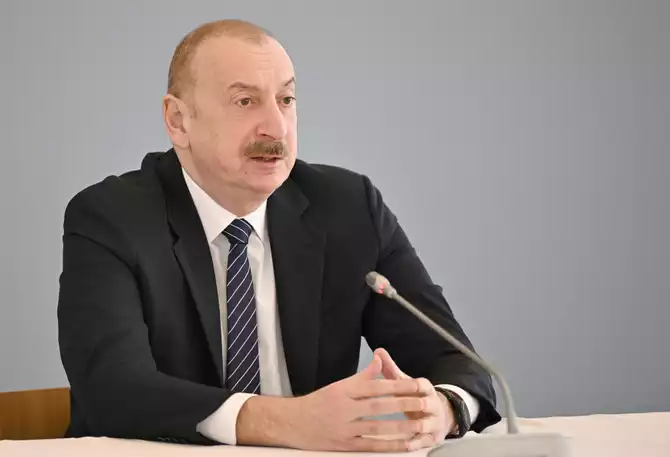
Source: AzerTag
Today, Azerbaijan is once again embracing the role of regional mediator with determination and clarity of purpose. Drawing on its successful experience from the past and backed by the trust it has earned from both Türkiye and Israel, Baku is positioning itself as a reliable and discreet facilitator of dialogue. What sets Azerbaijan apart is not only its geopolitical location but also the unique bond of friendship it shares with both nations-a bond built on years of strategic partnership and mutual respect.
In a region often shaped by rivalries and historical grievances, Azerbaijan’s quiet diplomacy offers a rare and valuable alternative. Its approach-based on discretion, neutrality, and a genuine desire to preserve regional stability-has already proven effective during the first Turkish-Israeli rapprochement. Now, as tensions once again threaten to undermine cooperation between two of its closest allies, Azerbaijan is stepping forward with the hope that diplomacy, not discord, will prevail.
The stakes are high. Any prolonged conflict between Türkiye and Israel risks destabilizing not only their bilateral relations but also the broader regional balance. Baku understands this-and is determined to ensure that its efforts contribute to de-escalation, mutual understanding, and perhaps, over time, a renewed strategic dialogue between Ankara and Tel Aviv. If successful, Azerbaijan’s mediation could serve as a powerful reminder that even in a fractured world, bridges can still be built-especially when trust is earned, and diplomacy is practiced with quiet strength.
Share on social media